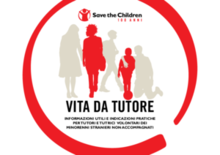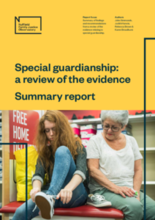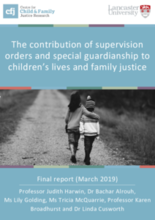Displaying 11 - 20 of 111
This paper reports a small qualitative research study where 10 sets of grandparents were interviewed to explore their journey to becoming GSGs and to theorize their subsequent experiences.
This article elaborates on provisions concerning the international protection system for minor migrants. It examines entry strategies put into place by young migrants facing the Spanish migration system.
This manual (written in Italian) seeks to ensure better protection and respect for the rights of migrant children and strengthen the guardianship system by providing key information and guidance for guardians and tutors of unaccompanied foreign minors.
The purpose of this paper is to investigate how the recommending of contact in special guardianship cases is currently working, by holding focus groups with social workers and special guardians.
The aim of this module from the book Rights-based Integrated Child Protection Service Delivery Systems is to learn about the need for rights-based support services for children and families at risk in specific situations.
The purpose of this paper is to investigate the recommending of contact in special guardianship cases, and to provide data on what contact social workers are recommending, the factors they take into consideration, and the reasons for their decisions.
This rapid evidence review is intended to contribute to the drafting of authoritative guidance to assist courts in the UK in making Special Guardianship Orders (SGOs) and to help inform decision-making by frontline practitioners.
The National Quality Improvement Center for Adoption and Guardianship Support and Preservation (QIC-AG) is a five-year project working with eight sites that will implement evidence-based interventions or develop and test promising practices which if proven effective can be replicated or adapted in other child welfare jurisdictions. This webinar presented learning from the project related to staffing and staff support, recruitment and retention, cost/sustainability, stakeholder collaboration, and logistics.
In this study, the outcomes of a whole-community intervention program targeted at improving the well-being of LBC and other rural children ages 7–18 were examined through a quasi-experimental evaluation.
This report is about the use of ‘family orders’ to support family reunification and placement with family and friends as outcomes of S31 care and supervision proceedings brought under the UK Children Act 1989. The over-arching aim of this study is to understand the opportunities, challenges and outcomes of these orders, and their use at national and regional level.



